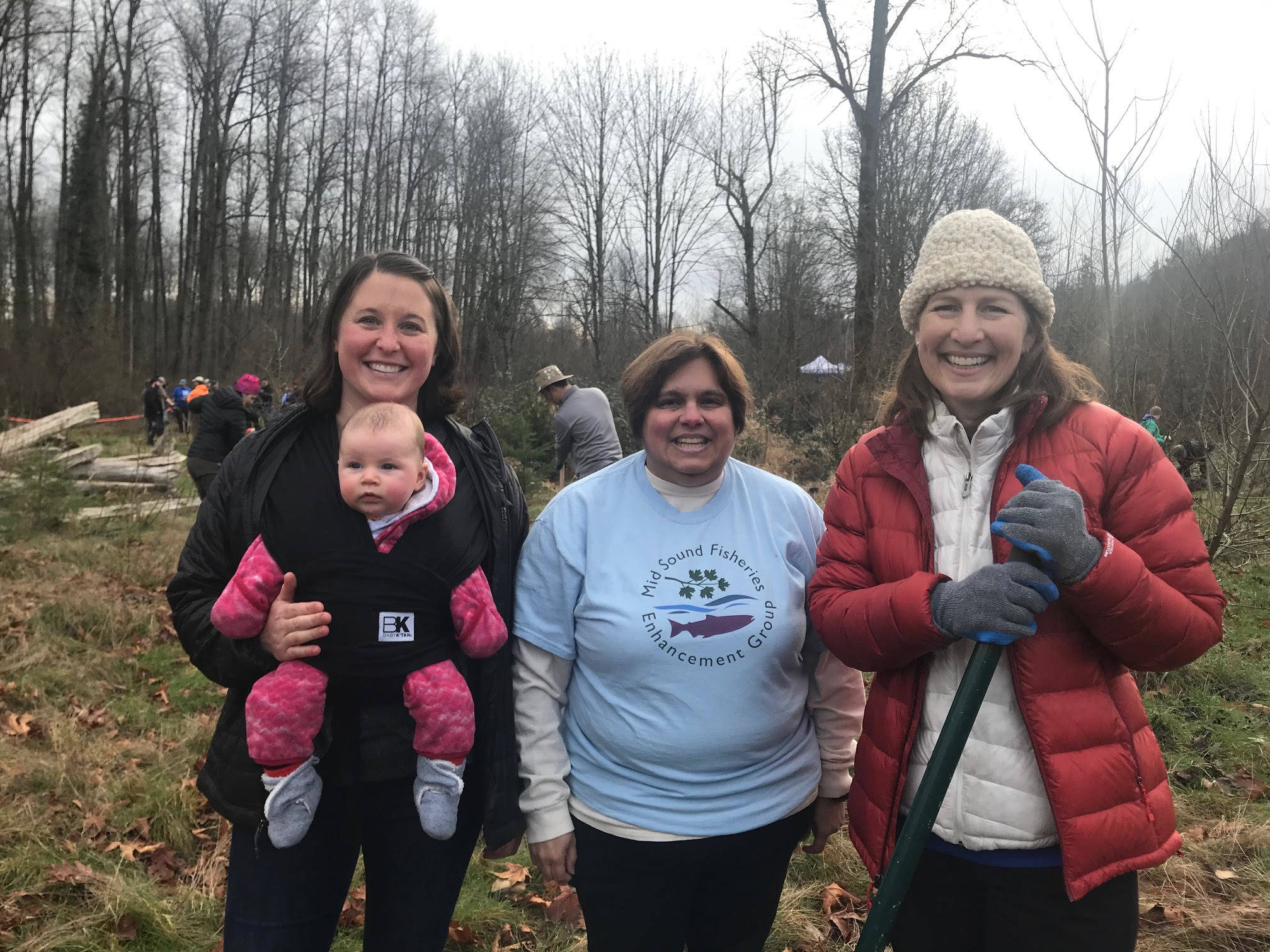Greg Wingard grew up near the Green River in Kent, floated it, paddled it in kayaks, rafted it, swam it, played in it, had great times, loved it all.
But today, as Wingard is painfully aware, all is not well.
Below the glittering surface. in waters grown too warm, salmon are struggling to survive.
That’s not just a salmon crisis, Wingard said, it’s everybody’s crisis.
On Monday morning, the crisis called Wingard and more than 50 volunteers out to work the soil in Fenster Park on the banks of the Green River in southeast Auburn and help those beleaguered salmon.
First, to root out invasive blackberries and other plants that, left to run wild on the bank, could elbow native shrubs and trees clean off, and then to plant 150 shade-creating, water-cooling trees and shrubs.
The idea is that by restoring the green areas to what they once were, people can help the sweating fish.
“This work is the follow up to the Fenster Levee setback project, a major, salmon-habitat, river restoration effort several years back,” said Jeanette Dorner, executive director of the nonprofit, Mid Sound Fisheries Enhancement Group, which is working with the city of Auburn to host a series of stewardship events, among them Monday’s work.
“This part of the project takes more than a one-and-done commitment,” Dorner said. “It’s a long term thing.
MSFEG is one strand in a network of 14 groups throughout the state, each with its own set of watersheds to tend with the help of communities keen on recovering salmon populations. It works in the Green-Duwamish and the Cedar-Sammamish watersheds, and on the Kitsap County side of Puget Sound.
Also out in force were city parks employees, Auburn residents, volunteers from Americorps and United Way, and interns and members of the Green River Coalition, MSFEG’s regular partner on river restorative work. Co-founded by Wingard, it is today an internship program affiliated with Green River College’s Natural Resources Program.
Ben Saari, MSFEG’s restoration project manager, said thriving forests and shorelines provide countless benefits to communities, like filtering pollution and mitigating erosion and storm damage, providing places for wildlife to live and for people to connect with nature.
“Today, we planted Douglas fir and western red cedar for our two conifers. They’re slow-growing, so they’ll grow bigger before the river moves along and washes them away. We had Oregon ash and Pacific willow, which are faster growing deciduous trees. For shrubs we had lots of different roses, red-osier dogwood and salmonberry.”
“Restoring the watershed is very important to me and bringing salmon back,” said Desirae McGuire, intern with the Green River Coalition, just then waging war with a stubborn blackberry bush.
Sally Ellis, formerly an 18-wheel truck driver and today a GRC student and another member of the Green River Coalition, explains what brought her out.
“I like being outside, I like being held responsible for the Earth because we are supposed to be stewards. We are responsible for the soil, we are responsible for the trees, we are responsible for every living thing. I want to be a good example to other people to come and join us,” said Ellis.
“It’s about service,” said Todd Wix, a student intern with the Green River Coalition. “It’s about leaving a legacy, something to show the kids 20 years from now. Any day in the soil is a good day for me.”



